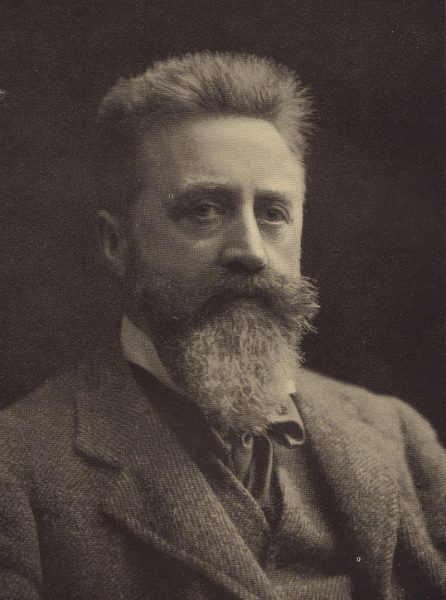 Granville Bantock was a British composer and conductor, who emerged as a prominent figure in the late Romantic era, contributing significantly to the landscape of classical music in the early 20th century. His compositions, often characterized by their rich orchestration and a fascination with exoticism, reflect a unique blend of British and international influences.
Granville Bantock was a British composer and conductor, who emerged as a prominent figure in the late Romantic era, contributing significantly to the landscape of classical music in the early 20th century. His compositions, often characterized by their rich orchestration and a fascination with exoticism, reflect a unique blend of British and international influences.
He was born on August 7, 1868, in London, England, though his father was a prominent Scottish surgeon. He initially trained for the Indian Civil Service, but his poor health made that a problematic career path. He grew interested in music quite late on, therefore, and only entered the Royal Academy of Music in 1889. After his four years there, he became a conductor before, in 1908, being appointed Peyton Professor of Music at Birmingham University, succeeding Elgar in the post. He retained it until retiring in 1934. He wasn't to die, however, until 16th October 1946.
One of Bantock's defining characteristics as a composer was his fascination with international music and exoticism. His compositions often incorporated elements from various musical traditions, including those of India, Persia, and the Middle East. This fascination with exoticism was partly fueled by Bantock's travels and exposure to non-Western musical cultures. His orchestral works, such as the "Omar Khayyám" trilogy and "Thalaba the Destroyer," are prime examples of his exploration of exotic themes and musical languages.
The New Groves is, however, fairly dismissive of his compositional efforts: "He was strongly influenced by Wagner and Richard Strauss, but never adopted the advanced harmonic idiom of Tristan, let alone Salome or Elektra. His style, both in orchestration and harmony, rather suggests such works as Der fliegender Holländer and Guntram. It is based on common chords and diatonic discords; the complex chromatic suspensions of Tristan are outside its scope, as is the dissonant counterpoint of Strauss's more advanced works." The same article goes on to say, "although acquainted by travel with several Asian countries, the subtlety and restraint of oriental thought escaped him", which is pretty stern stuff!
In any case, it is true that though his music was important in the early stages of the 'English musical renaissance', it swiftly fell out of fashion and into obscurity. Again, the New Groves is unforgiving on this point: "He wrote too much, with too great a facility; there are too many works to remember and revive; and the task of sifting out what is good in his music from what is merely note-spinning is so formidable as to militate against the frequent performance of his larger works." That seems pretty damning -and today's CD catalogues, produced some 40 years after my edition of New Groves was published, would suggest that the task wasn't so formidable as feared! His orchestral music is now quite generously represented in the catalogues, and I certainly find it lusciously-romantic and attractive enough, though not perhaps terribly distinctive.
Music Plays from my collection
(since January 9th 2021)
| Date of Play | Time of Play | Genre | Composition | Length | Play Count |
|---|---|---|---|---|---|
| Date of Play | Time of Play | Genre | Composition | Length | Play Count |